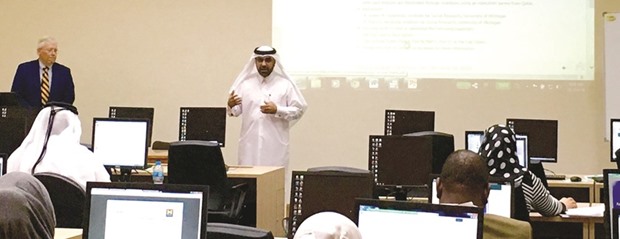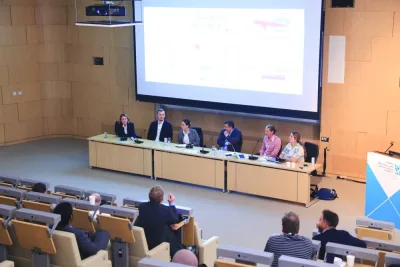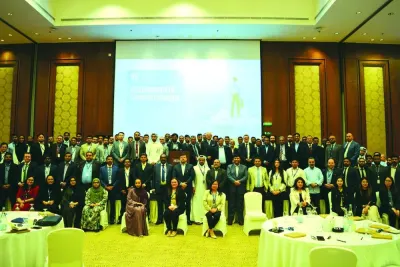The Social & Economic Survey Research Institute (SESRI) at Qatar University (QU) held a four-day workshop on “Advanced Sampling” recently to introduce researchers to the principles and practice of analysing data from complex sample surveys.
The event brought together more than 40 participants from across QU to exchange their ideas and knowledge, and share their experiences on complex sample survey data. SESRI director Dr Hassan al-Sayed delivered the opening remarks.
The workshop was led by Prof James M Lepkowski (research professor emeritus at the University of Michigan and research professor at the Joint Programme in Survey Methodology at the University of Maryland) and Prof Patricia Berglund (senior research associate in the Survey Methodology Programme at the Institute for Social Research).
They presented the principles of survey design and how design features affect analysis methods as well as the use of statistical software to do such analysis. They also illustrated methods for analysing survey data with such features through examples using an education survey from Qatar, and implemented such analyses using two statistical software systems – SPSS and Stata.
In his remarks, Dr al-Sayed noted that complex sample surveys are those employing one or more basic sampling design or estimation techniques such as weights, stratification, cluster sampling, nonlinear estimation, variance estimation, or imputation.
He further noted that these features were examined to help participants understand why they make analysis of such data more complex.
“By hosting this event, SESRI is working towards QU’s strategic objective to seek efficient solutions to issues that impact the wider community and to ensure that research efforts address contemporary challenges in Qatar and beyond,” Dr al-Sayed said.
“SESRI continues to deliver on its mission to enhance research capacity by studying and monitoring important societal changes, and to provide sound and reliable data to guide policy formulation, priority-setting and evidence-based planning and research in the social and economic sectors,” he added.

Dr Hassan al-Sayed speaking at the workshop.


